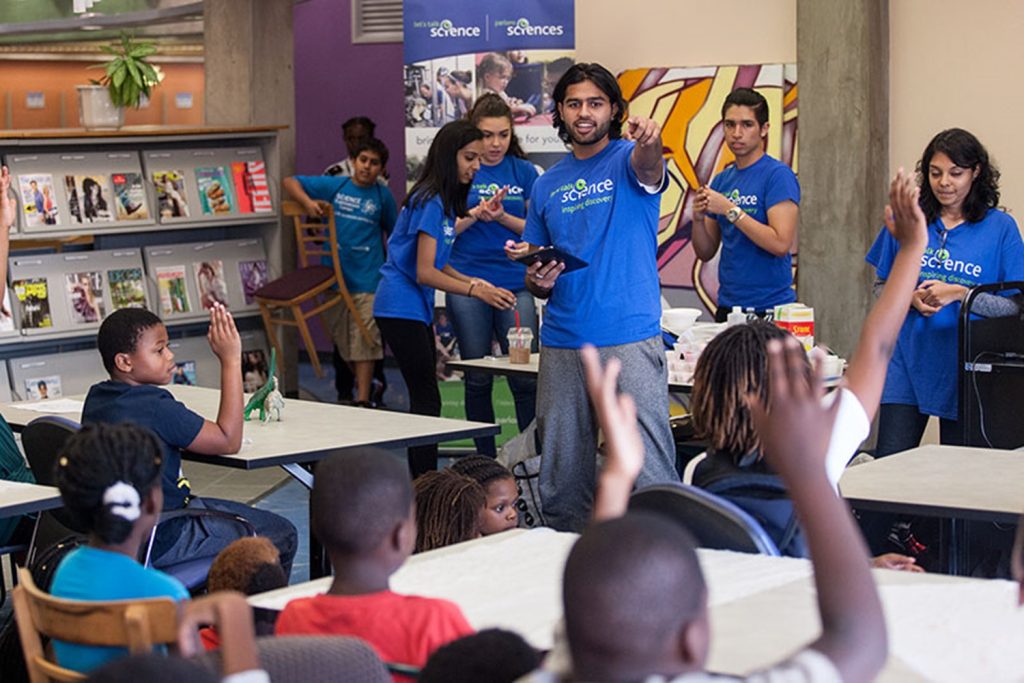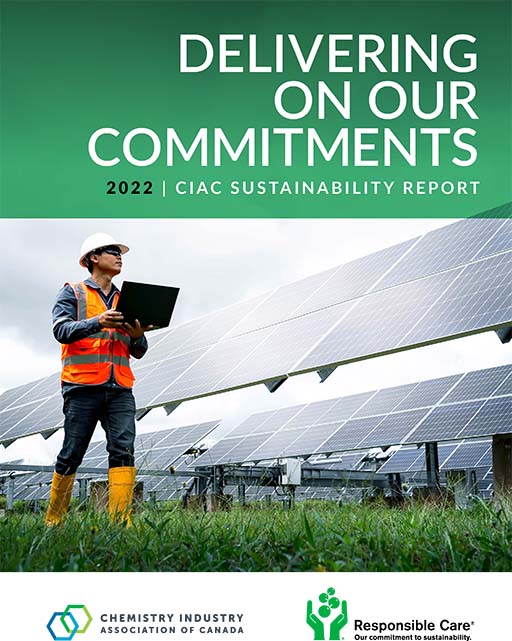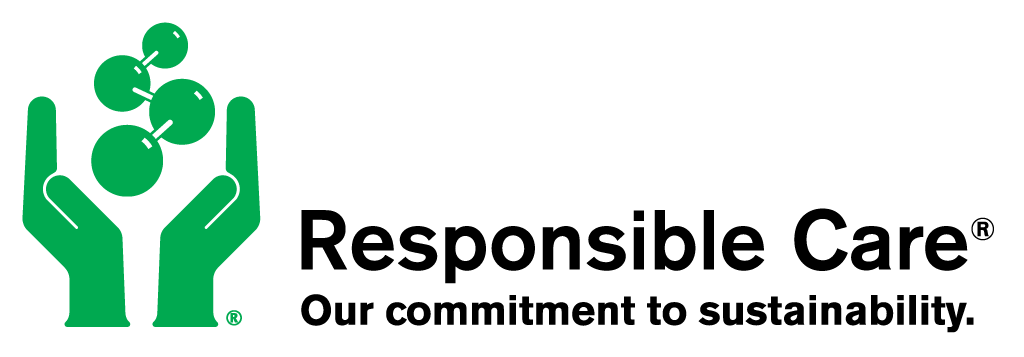Through Responsible Care®, CIAC members commit to fostering ongoing community awareness and dialogue, receiving and responding to public feedback, and providing information about the risks and benefits of their operations with Canadians — particularly those living in communities where members do business. Through these Responsible Care commitments, CIAC and its members are making progress on UN SDG 12 (Responsible Consumption and Production) and the following targets:
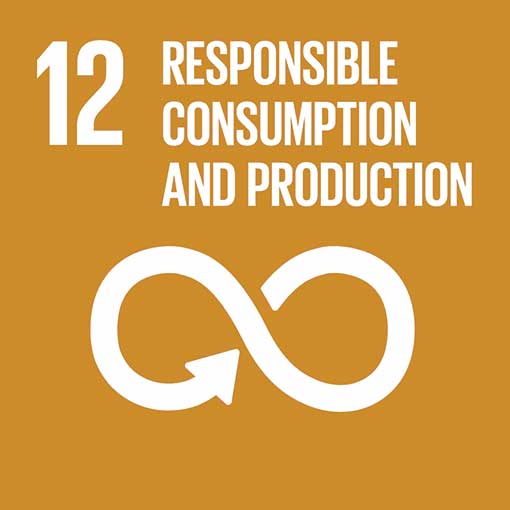
12.4 – By 2020, achieve the environmentally sound management of chemicals and all wastes throughout their life cycle, in accordance with agreed international frameworks, and significantly reduce their release to air, water and soil to minimize their adverse impacts on human health and the environment.
12.6 – Encourage companies, especially large and transnational companies, to adopt sustainable practices and to integrate sustainability information into their reporting cycle.
12.8 – By 2030, ensure that people everywhere have the relevant information and awareness for sustainable development and lifestyles in harmony with nature.
CIAC’s National Advisory Panel
Responsible Care is guided by input from CIAC’s National Advisory Panel —a group of academics, environmental leaders, and community members who provide an external, critical perspective on all matters related to the Canadian chemistry industry. The panel meets three times a year, allowing for continuous dialogue between CIAC, its members, and these key thought leaders and opinion shapers. Through the panel’s advice and input, CIAC can better understand Canadians’ expectations of the chemistry industry. The panel also performs an important challenge function: alerting CIAC to emerging issues, encouraging it to focus its efforts in particular areas, or to rethink its policy and advocacy positions.
Virtual World Café
On April 13, CIAC hosted its first Virtual World Café (VWC) event. A VWC is a collaborative conversation that facilitates open and respectful discussion. The structure allows participants to offer multiple points of view, allowing for engaging conversations and building on the ideas of the collective.
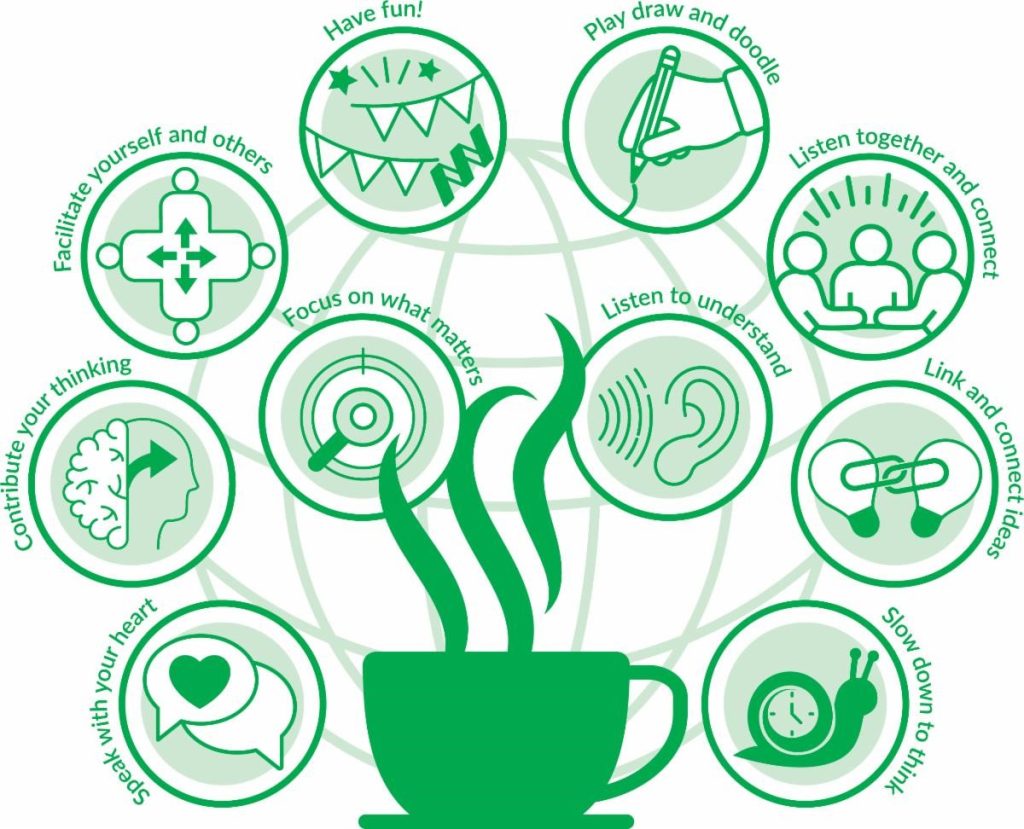
This event was an opportunity to initiate a discussion about how CIAC can help its members improve their community engagements. CIAC sought out participations from individuals familiar with the industrial risks in their communities, those with experience participating in Community Advisory Panels or committees (past or present), individuals who promote public safety within their communities, others accountable for corporate community engagement, and members of CIAC’s National Advisory Panel. Over 20 community advocates from different industries across Canada came together to learn, share, and collaborate on public engagement approaches while sharing their unique experiences and perspectives.
Through this conversation, CIAC successfully identified best practices and areas for improvement to work towards the creation of tools, guides, and other member resources.
NorFalco – Sulphuric acid leak mock exercise
On April 28, Sudbury Integrated Nickel Operations, a Glencore Company (Sudbury INO) in Falconbridge, Ontario in cooperation with NorFalco, conducted a full-scale tank trailer sulphuric acid leak mock exercise. The mock exercise triggered multiple layers of responders, starting from the NorFalco ERAP, it included members from the Sudbury INO ER HAZMAT team, EMS, Transport Canada, police, fire department and City of Greater Sudbury emergency management staff.
The exercise was premised on a sulphuric acid leak occurring from a road carrier tank trailer. The simulated leak started from the Sudbury INO site and made it all the way to the public roads in the town of Falconbridge and Garson, Ontario arena where emergency response personnel attended to the situation. This event was a great learning opportunity, not only for the internal and external response networks, but for the public as well. Several local media outlets, including CBC Sudbury, were on site and performed interviews.

DuPont Canada – Habitat for Humanity
In May 2022, DuPont sponsored two build days with Habitat for Humanity (HFH) Kingston Limestone Region. Thirty enthusiastic DuPont volunteers from the Kingston Technology Centre, Mississauga Head Office, and various home offices gathered to support the build of four townhomes for four very deserving families. The two teams made significant progress with the installation of drywall in the townhouse units. In addition to a financial donation, DuPont Canada and the DuPont Performance Building Solutions business generously donated product-in-kind so that families had access to safe and affordable housing.
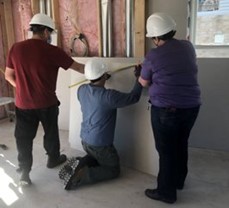
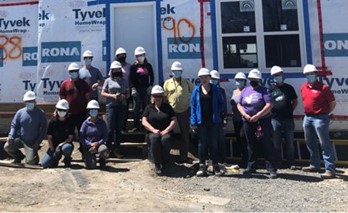
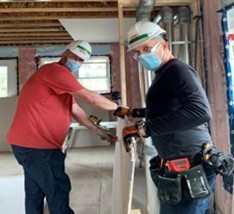
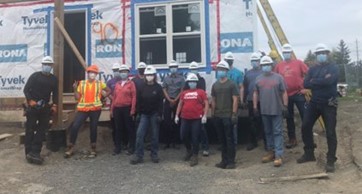
LANXESS – Community Advisory Panel
On September 29, LANXESS hosted its regular Community Advisory Panel (CAP) meeting at the Elmira, Ontario production site – kicking things off with a full site tour for participants. To provide full transparency for the community, CAP members were able to visit every part of the LANXESS Elmira facility to get an overview from site experts.
Discussions throughout the tour centered around the various processes and implemented safety measures, as well as products and chemistries used or produced, transportation methods, wastewater treatment, and even the fire brigade on site. Participants were able to ask questions or raise concerns on behalf of themselves and their community members, allowing LANXESS to answer and clarify, ultimately with the intent to make the community aware and comfortable with the site’s operations.
NOVA Chemicals – Supporting STEM education across Canada
NOVA Chemicals announced in November that it renewed its commitment to Let’s Talk Science for three years, with a $600,000 donation to support science, technology, engineering and math (STEM) education for children and youth across Canada. Being part of an industry that relies heavily on a range of scientists, engineers, and technicians, NOVA is committed to increasing science literacy in the next generation, regardless of gender, geography, culture, language, abilities, or financial status. NOVA’s contribution will be felt across Canada with the intent to build confidence and develop problem solving, creativity, and innovative thinking skills in children and youth, and encourage youth to pursue STEM education and career paths, including in the chemical manufacturing sector.
